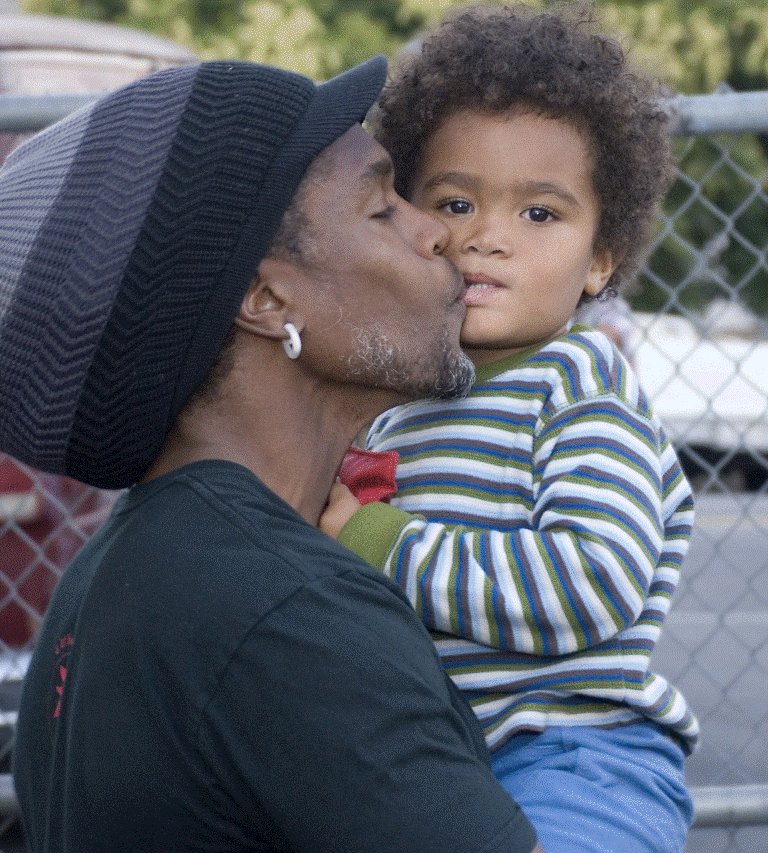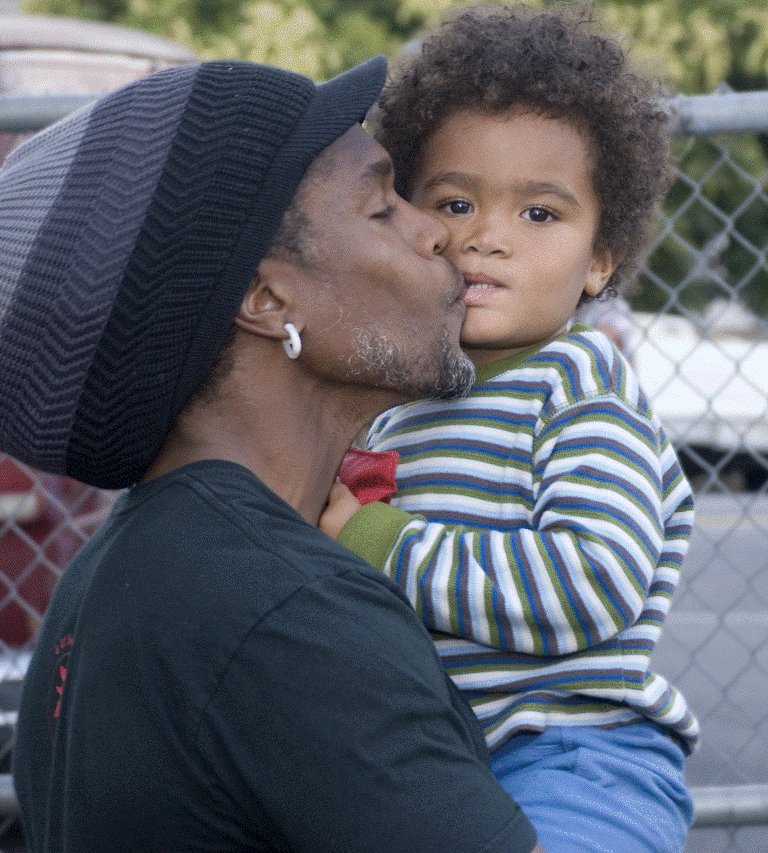
 Now that the Father’s Day celebrations are over and the touching tributes on Facebook scrolled past, how do we continue to remain conscious of all that it takes to be a father? Here at Echo, we work year round teaching parenting to young fathers (ages 14-25 years) through a program called LA Fathers that is run by Children’s Hospital Los Angeles. Ben Wright, our Fatherhood Project Coordinator, says that often the young men he teaches are thrust into the role of being a father at an early age when so much of their lives – relationships, work, identify – are in flux. Many also have been involved in the foster care or criminal justice systems. Critically, they have often lacked good role models and are confused about what exactly it is to be a man and how to be a good father.
Now that the Father’s Day celebrations are over and the touching tributes on Facebook scrolled past, how do we continue to remain conscious of all that it takes to be a father? Here at Echo, we work year round teaching parenting to young fathers (ages 14-25 years) through a program called LA Fathers that is run by Children’s Hospital Los Angeles. Ben Wright, our Fatherhood Project Coordinator, says that often the young men he teaches are thrust into the role of being a father at an early age when so much of their lives – relationships, work, identify – are in flux. Many also have been involved in the foster care or criminal justice systems. Critically, they have often lacked good role models and are confused about what exactly it is to be a man and how to be a good father.
Marking the occasion of Father’s Day, Ben shared some of his reflections about what it means to be a father – for him and the young men he teaches – beyond the Hallmark cards rhetoric. (*Names have been changed to protect the privacy of individuals.)
By Ben Wright, Fatherhood Project Coordinator“In class we cover all the topics in Echo’s nonviolent parenting curriculum, but one thing I do a little differently is an activity created by Paul Kivel – the Act Like A Man Box, which focuses on what we’ve learned (either explicitly or by observation) about what men are supposed to be like.
So many things come up when I do this activity; violence is always part of the conversation – sometimes on the periphery and sometimes right in the center. It’s one of the things that keep men in the Act Like A Man Box. And I’m not just talking about violence in the abstract — one time a fight almost broke out when two participants disagreed about whether you should inform the police when someone has done something wrong. It was intense and scary, and neither one wanted to back down. I was able to de-escalate the situation enough for us to go to a break. During the break one of the guys, Joey*, shared a little bit about his recent history and it gave me some insight about why he had blown up so quickly. He had just recently gotten out of jail and his conviction had hinged on someone talking to the police.
Giving Joey a little time, attention, and empathy allowed him to open up. I did not paint anyone as the problem or the enemy and I didn’t come down hard and let him know that what he did was wrong or bad. I saw his behavior for what it was – a communication about a deeply held need that had not been met. I could see this almost-fight as a cry to be understood, to be seen and have experiences taken seriously. Looking at behavior in this way is the one of the pillars of nonviolence.
One of the many profound things that I teach these young men is awareness about our own personal backstory – the experiences we had growing up, the pressures, the expectations, and the context that surrounded those experiences. We learned many lessons growing up and some of those lessons were brutal. We still carry the scars of this brutality in our hearts, minds and bodies. It often fuels our reactions and definitely colors the way we respond – including the use of violence.
Add to that the pressure of parenting. The role of a father can be draining, lonely, and heart-wrenching (in a bad way). We often feel we’ll be measured as a success or failure based on how well we do, not on how hard we tried or how much we cared. But through nonviolence and finding support for ourselves, being a parent can also be transforming, inspiring, and heart-wrenching (in a good way). But asking for support and understanding is WAY outside of the box we’ve created to keep ourselves safe.
So to my fellow fathers, my wish on Father’s Day is that we will be celebrated not just for what we do, but for ongoing understanding for who we are, where we have come from, and what we aspire to be going forward.”
Want to learn more about what men experience? The Mask You Live In is a great film that explores these topics in depth – click the link above to find a screening near you. You can also talk to the men in your life — like Joey, it might take a little time and attention, but to feel understood is one of the best gifts you can give, 365 days of the year.


